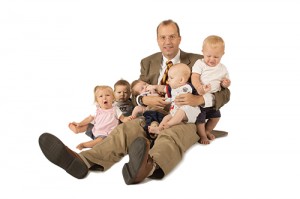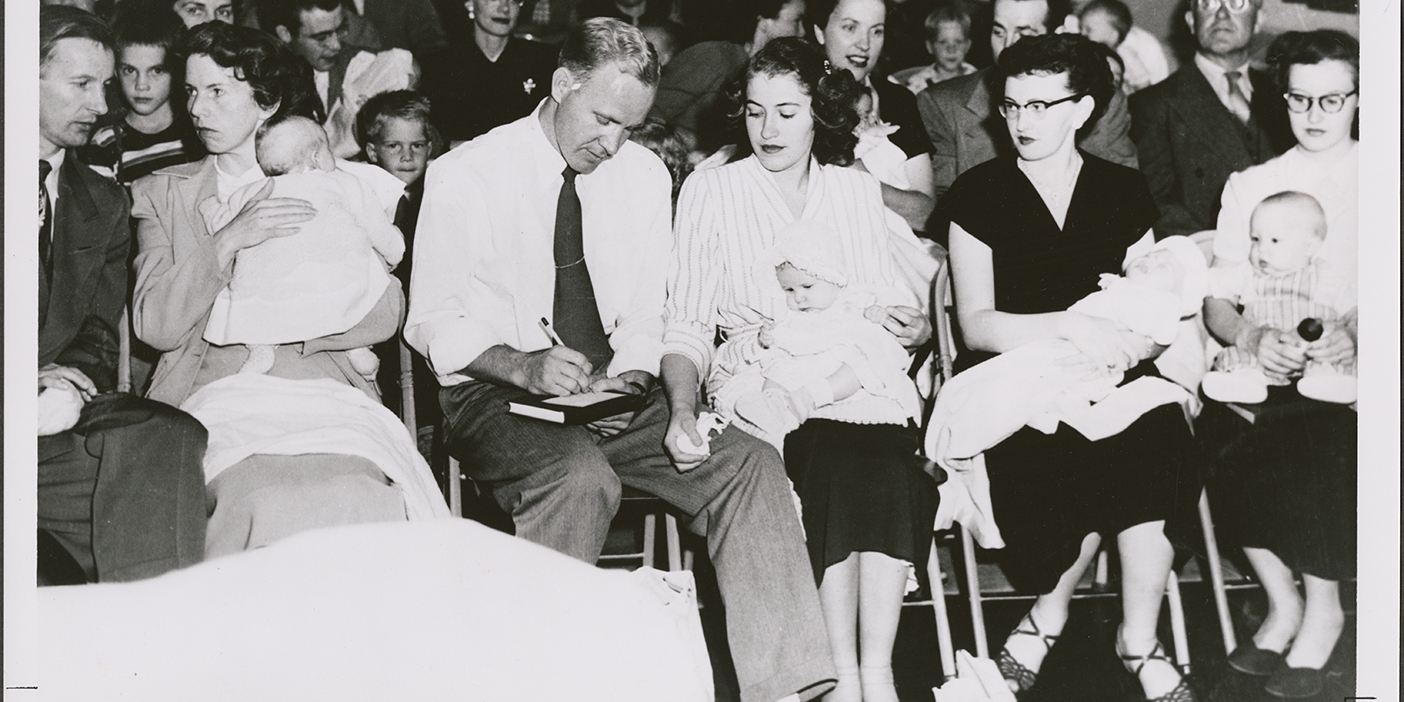Children develop more cognitive, emotional, and dexterity skills in their first three years than they will for the rest of their lives. Psychology professor and baby expert Ross Flom has used Beethoven, dogs, and monkeys as stimuli to better understand how babies master cognitive skills so quickly.

Psychology professor Ross Flom and friends (left to right) Collynns, Nolan, Rebecca, Peter, and Porter had fun in this photo shoot. Scan this code or visit magazine.byu.edu/babies to see more photos.
Q: What have you uncovered about a baby’s first year?
A: By 4 months infants can discriminate basic emotions like happy and sad, anger and fear when they can see it in your face and hear it in your voice. At 5 months infants can discriminate emotions in a voice alone; in a face alone at 7 months. Why voices before faces? We know that infants can hear in utero, so their auditory system is functioning well before their visual system. By 9 months babies can discriminate between happy or sad classical music excerpts—say, Beethoven’s “Ode to Joy” and his sorrowful Seventh Symphony. At 12 months babies can discern emotion that is directed toward something, such as when a baby goes towards an object and hears, “No, no, don’t do that,” in a serious tone. They can remember this object-emotion pairing for at least one day.
Q: How do you determine what a baby is thinking?
A: We observe the time infants spend looking and their attention span. Babies tend to look at something that is new or novel longer than something that is familiar. We create events that differ subtly in a specific property or another, and we record whether infants attend more to the new event. Another method we use is placing two visual stimuli side by side. For example, in our dog study, babies would see angry Rover or happy Rover side by side and hear either a playful bark or an aggressive bark. They looked longer at the dog that matched the correct bark.
Q: What can parents do to help infants develop?
A: Kids really need time spent interacting and playing with others—things like peek-a-boo or pat-a-cake. Games and toys like Baby Einstein have not been shown to reliably promote cognitive development. What matters is that the child interacts in socially and cognitively enriching activities with another person.
Young infants conduct their own mini-experiments: the 5-month-old who repeatedly drops a piece of cereal from the high chair is learning object permanence—that is, “If I drop an object and it goes out of sight, it continues to exist because Dad puts it back on the tray again and again!” Socially they are learning, “Hey, I can get others to do things for me,” and “If I smile and coo at Dad, he will smile and verbalize back.” The take-home message is that infants learn by doing and by interacting.









